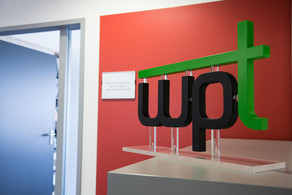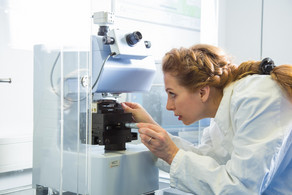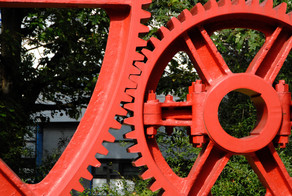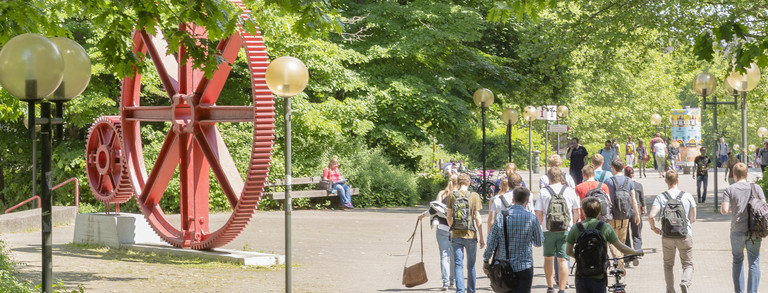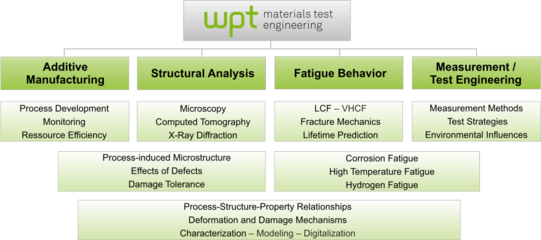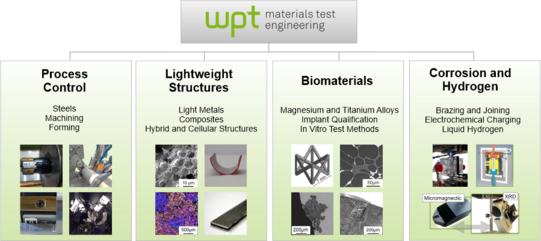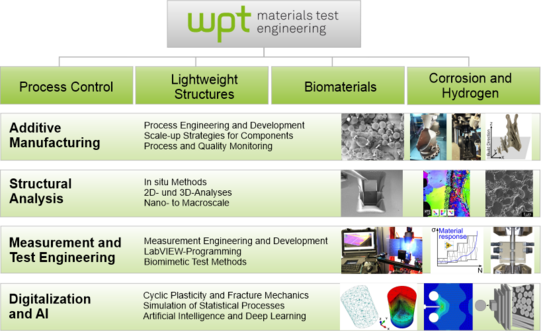Profile
Since its establishment, the Chair of Materials Test Engineering (WPT) at the Faculty of Mechanical Engineering of TU Dortmund University has been headed by Prof. Dr. Frank Walther.
Materials testing technology provides the data and decision basis for the development, design and manufacture of operationally reliable high-performance products for all sectors of industry. Successful material selection, quality control, component monitoring and failure analysis are based on the accurate determination of chemical composition, microstructure and defect structure, material properties and damage evolution, complemented by powerful modelling and simulation methods. In addition to material qualification and manufacturing optimisation, the identification and separation of fundamental deformation and damage mechanisms, structural integrity and service life prediction is of great importance.
In research and teaching, basic and application-oriented topics of destructive and non-destructive, microscopic and mechanical material and component testing are treated. Innovative measurement and testing methods, their coupled application and further development in line with requirements, create the basis for the experimental determination of the deformation behaviour and the damage initiation or evolution. In-situ analysis techniques and digital evaluation routines ensure to correlate the microstructure and defect features with the local performance and implement them in modelling approaches. The complexity of the requirements is increasing due to the advancement of material systems and process techniques in terms of tailored structural and performance gradients.
In addition to additive manufacturing, microstructure and mechanism-based characterisation of the fatigue behaviour of established and newly developed materials and components from the low-cycle LCF to very-high-cycle VHCF fatigue range, including high-temperature and corrosive environments, represents a key skill (Fig. 1).
The Process Control, Lightweight Structures, Biomaterials and Corrosion and Hydrogen research groups evaluate process-structure-property relationships on different scales for steels, light metals, composites and natural materials as well as additively manufactured materials under mechanical-thermal-medial stress. This is of great relevance for basic scientific research and application-oriented development (Fig. 2).
In interdisciplinary working groups on AM Processing, Structural Analysis, Measurement and Test Engineering as well as Digitalization and and AI, topics are clustered, evaluated with regard to transfer and solution concepts developed for interdisciplinary research focuses (Fig. 3).
You can find the presentation of the Chair of Materials Test Engineering on YouTube.



